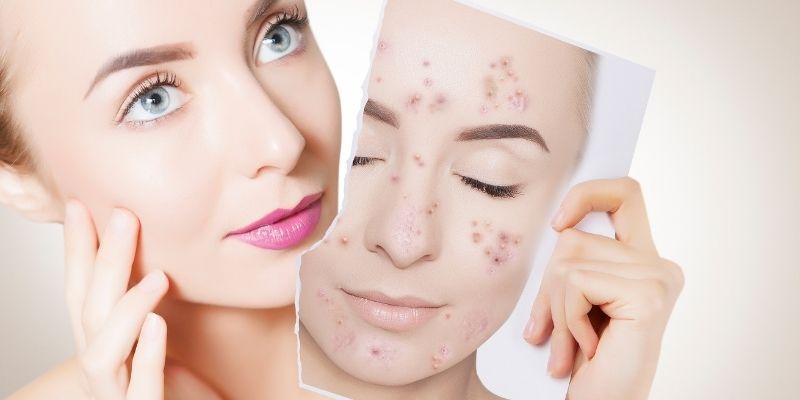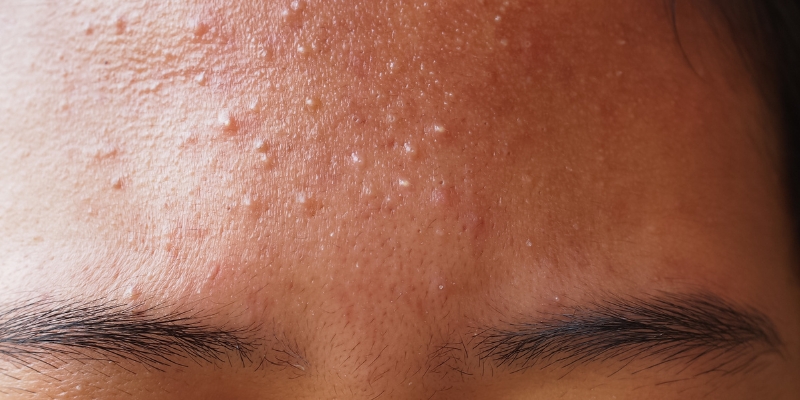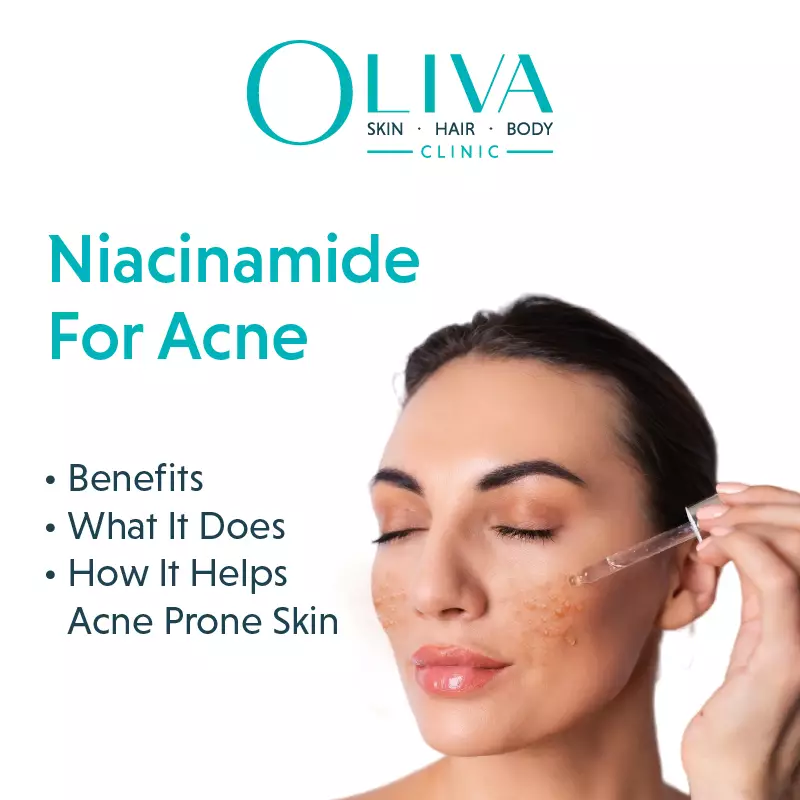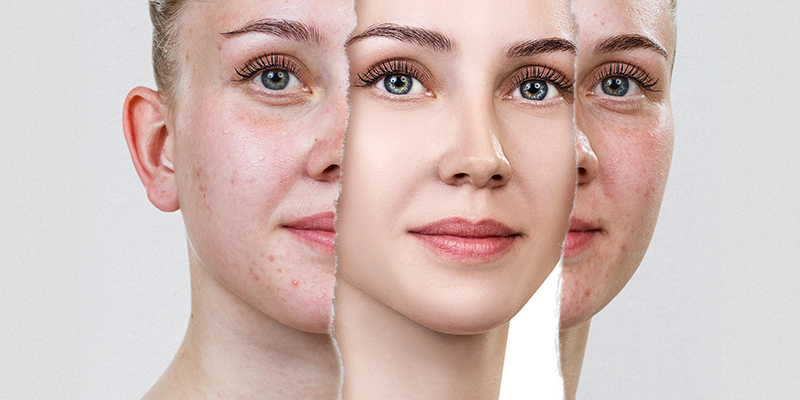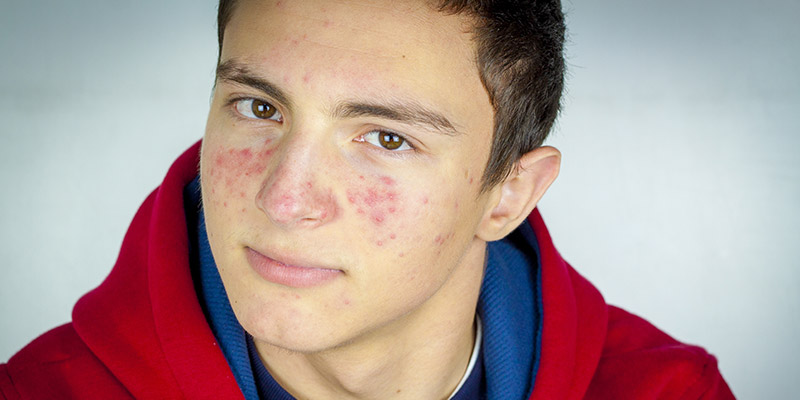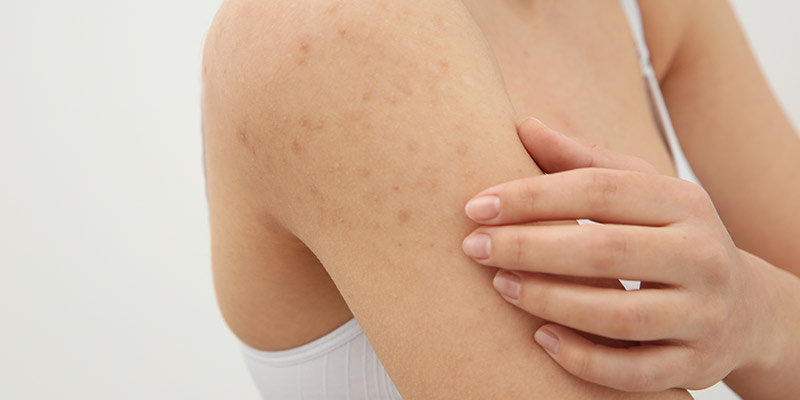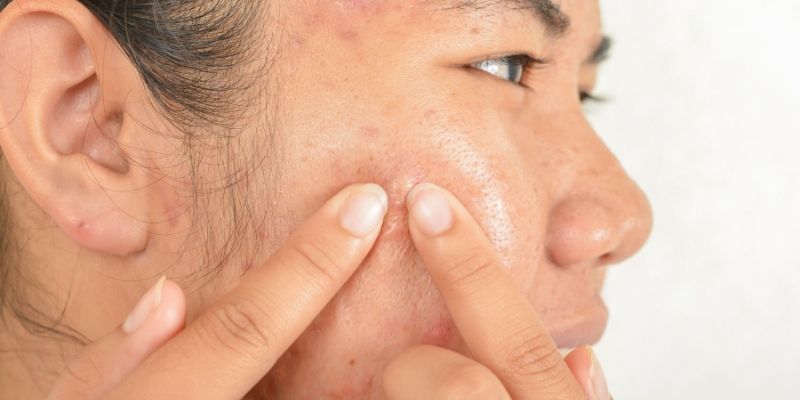How To Remove Pimples From Face – Types, Treatments & Remedies
Waking up to a huge pimple bang in the middle of your forehead can be considered as one of the most distressing and embarrassing experiences. Don’t worry, we have all been there. Pimples are the worst, there is absolutely nothing great about having pimples. It’s as if they know that something important is about to happen, so they decide to pop up and make a guest appearance. Fret not as this article is going to teach you everything there is to know about this devil as well as how to get rid of it.
Pimples start to occur as you enter the adolescent stage of life and can continue for several years (sometimes decades!) later on. They are caused by over-production of sebum oil, which can clog the skin pore and cause an outbreak of pimples on your face. Pimples can break out on your forehead, between your eyebrows, spread across your cheeks, pop up on your nose, and line up on your chin and jawline. They are a complete nuisance as they lower your self-esteem and ruin your overall look.
What Causes Pimples On Face?
- Hormones – Pimples are mainly caused by hormonal fluctuation. They start to show with an onset of puberty. During puberty, hormonal levels tend to rise which causes testosterone (male hormone) to produce large amounts of sebum, which is expelled through the skin. This can cause a pimple to form and cause an acne outbreak.
- The Role Of Genetics – Although it is not considered a hereditary disease, teenagers can be affected by pimples/acne because of their parents. Genetics does play a role in whether your skin is going to be affected by acne or not. According to studies, hereditary determines the health, clarity, and appearance of skin. But, irrespective of whether your parents had squeaky clear skin or a face full of acne, you can prevent this acne disaster by leading a healthy holistic lifestyle.
- Dead Skin Cells Build Up – It is of utmost importance to exfoliate your skin on a weekly basis. Failing to remove dead skin cells will clog your pores and cause acne to show its ugly head. Use a gentle exfoliator once or twice a week to keep pimples from popping up.
- Bacterial Growth – Acne can also be a result of bacterial growth. This bacterium is called Propionibacterium acnes. Inability to maintain a healthy lifestyle and improper cleansing of your face can lead to bacterial spread and cause acne. Bacterial acne occurs when the pores are filled with excess sebum and cause the surrounding skin cells’ wall to rupture and create an environment suitable for breeding bacteria.
Also Read: Safe And Effective Treatment For Acne Treatment
Affected Areas On Face
Pimples can affect any part of your face. They can pop up on your forehead, temples, cheeks, chin, or nose. Many a times, acne also form along the hairline.
Types Of Pimples On Face
Pimples come in all shapes and sizes. There are commonly categorized into two types: non-inflammatory and inflammatory.
- Non-inflammatory acne is mainly comedones that are either open or closed. Open comedones are called blackheads. The sebum in the open pores is oxidized upon contact with air and mixed with melanin to give it the black or brown color, commonly known as blackheads.
- Closed comedones are often covered with a thin layer of skin which fills with impacted sebum to form a plug, giving it a white top, commonly known as whiteheads. Whiteheads last for a week, whereas blackheads can last till extraction.
- Inflammatory acne is the result of bacterial infection that affects the skin pores and needs professional care. Inflammatory acne can be classified into four types – papules, pustules, cysts or cystic acne, and nodules.
- Papules are red in color whereas pustules are often yellow or white in color.
- Nodules and cysts appear in severe cases of acne. They are deep in the skin and are very painful to touch.
Also Read: Common Types Of Pimples & How To Avoid Them
Treatment Options For Pimples On Face
Most beauty stores are littered with treatments for pimples. Over-the-counter creams, prescribed acne medication, home remedies, etc. are easily available everywhere. The only underlying problem is to find a treatment that works with desired effectiveness. Eradicating pimples can be easily done by identifying the type of pimple.
Mild-Moderate Acne
- Proper cleansing, toning, and moisturizing must be followed. It is important to use a moisturizer that is suitable for oily/acne-prone skin. A gel-based moisturizer is preferable for pimple prone skin. Face washes containing salicylic acid may also help.
- Steaming and exfoliating your face will help open pores and clean them. Exfoliation will remove dead cells and encourage new and healthy skin cells to form. This will help with blackheads and whiteheads.
Severe Acne
Severe acne must be examined by a dermatologist. Prescribed medicine and drugs are the safest methods to remove severe form of acne. Popping pimples and acne cysts can lead to increased bacterial growth and scarring and should be avoided at all costs. It is advisable to visit a dermatologist if you are suffering from a prolonged duration and the acne condition is worsening.
How To Remove Pimples From Face?
There are many ways on how to remove pimples and if proper maintenance is followed, you can even prevent them.
- Follow A Holistic Lifestyle: Eating a diet that is rich in fiber, fruits, vegetables, and protein with proper intake of water is optimal for a healthy, glowing, and acne-free skin. It is also important to exercise. Whether you like yoga, cycling, dancing or going to the gym, make sure you move your body to detoxify your skin and improve blood circulation.
- Skin Care: Following a basic cleanse-tone-moisturize routine is going to help your skin maintain its health and glow. Another important tip is applying sunscreen before stepping out. Remember to use a non-comedogenic sunscreen, as the other variants can clog your pores and leave an oily residue.
- De-stress: Stress can fluctuate hormones and increase the risk of an acne breakout. Hormones such as androgens and cortisol can increase the production of sebum, which can cause more pimples or worsen a pre-existing condition.
Also Read: 18 Best Skin Care Routine For Acne Prone Skin
Pimples On Face Removal Tips
Here are some easy home remedies for pimples that you can try –
- Tomato pulp act as an astringent and is high in antioxidants. It is said to shrink your pimples and pores. Apply a face pack with tomato juice and honey for 15 mins.
- Neem leaves are antibacterial and anti-inflammatory. Make a fresh paste with neem leaves and water and apply on the pimples. If you cannot find fresh leaves, you can substitute it with dry leaves. You can also make a strong tea using dry neem leaves and use it as a toner.
- Honey and lemon juice are a great duo. While honey is antibacterial, lemon is an astringent with a high dose of vitamin C, making the combination more potent in as a pimple-attacking face mask. Also, they both have skin lightening properties that can help decrease the pigmentation caused by pimples.
- Mint and tulsi leaves can be used together or separately. They are fantastic at getting rid of pimples and also preventing future ones from popping up.
- Fuller’s earth or multani mitti is a great way to dry up a pimple. You can use it as an overnight spot treatment. It reduces the size of the pimple without discoloring the skin.
Also Read: How To Prevent Pimples On Face – Treatments, Tips & Remedies
Well, now that you know how to get rid of pimples, let’s actually get rid of them. Follow these simple tips and tricks to prevent and cure unsightly pimples and achieve that gorgeous skin you have always dream about.




